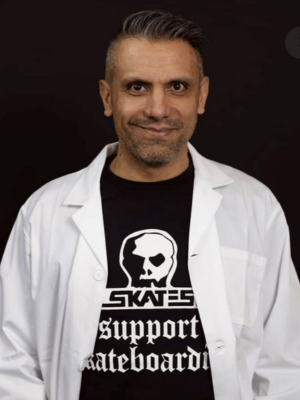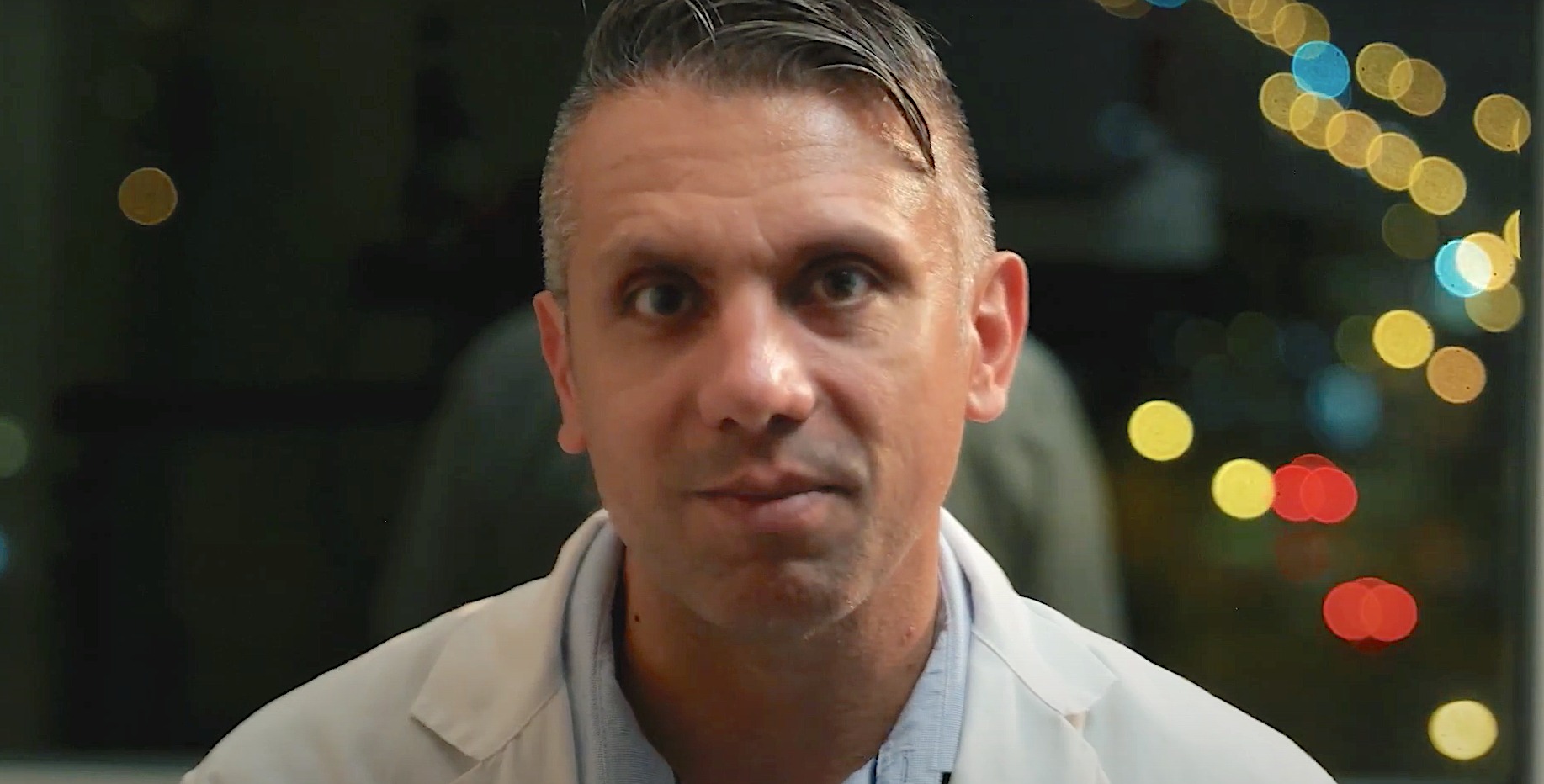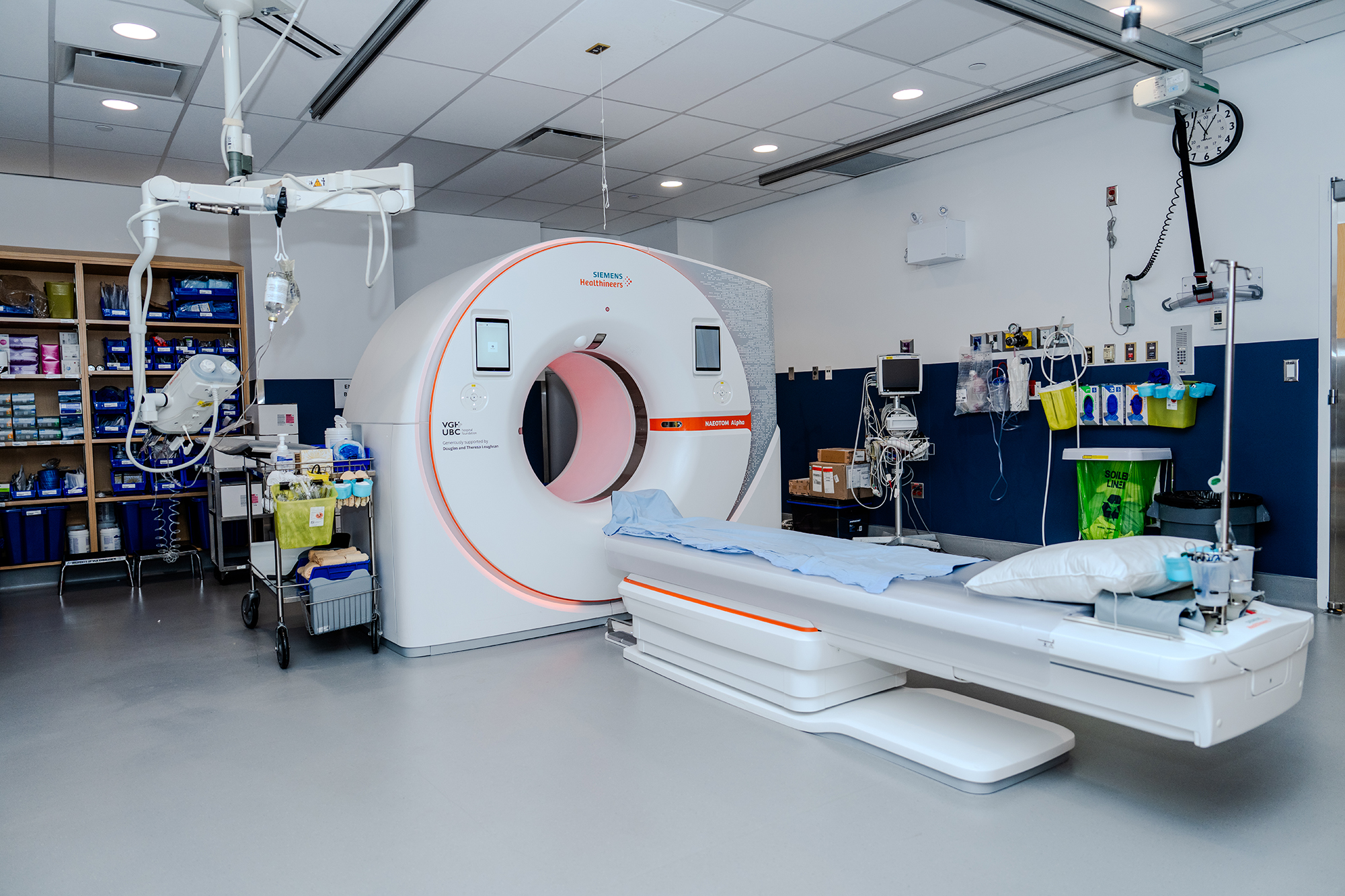Vancouver Coastal Health (VCH) clinician-scientist, Dr. Pouya Azar, is revolutionizing the future of mental health, addictions and pain treatment on a global scale. With the worsening opioid epidemic and rising rates of mental health disorders afflicting communities across BC and the world, his promising research offers a glimmer of hope needed now more than ever.
Motivated by this urgent need for advancements in mental health and addictions care, an anonymous donor has gifted $5 Million to establish the Translation Research for Psychiatry Endowment in honour of Dr. Soma Ganesan, who previously served as the Head & Medical Director of the VCH Department of Psychiatry.
Initially, this Endowment will allow Dr. Azar to launch the Innovations in Mental Health, Addictions and Pain Program (IMAPP) – a translational research hub dedicated to developing patient-centred treatments and treatment protocols that improve care for individuals and their families with substance use disorders, mental health disorders, and pain. The first research program in Canada to integrate these three areas in such a way, IMAPP will nurture international collaboration and accelerate meaningful discovery to directly benefit patients in our community and beyond.

A Complex Crisis
Vancouver has remained the provincial epicentre of the escalating opioid overdose crisis since it was declared a public health emergency in 2016. Driven largely by the increasingly toxic drug supply, illicit drug deaths are claiming the lives of nearly seven people per day in BC alone making it the leading cause of death for people aged 10-59.
Behind these devastating statistics often lies a deeper story of suffering. In the past decade, there has been a surge in mental health disorders across Canada. One in two people have or have had a mental illness by their 40s and it is currently the leading cause of disability nationwide.
It is undeniable that substance use and mental health disorders are deeply intertwined. Compared to the general population, those facing mental illness are twice as likely to experience a substance use disorder. Similarly, people with a substance use disorders are three times more likely to have a mental illness. Pain is also an important element of this conversation, particularly given its psychological impacts and the use of prescribed opioids for pain management. Research shows that integrated interventions that recognize the complex relationship between these concurrent disorders and pain and treat them in harmony lead to the best possible patient outcomes.
As the Head of the Complex Pain and Addiction Service (CPAS), a consulting service within VGH’s Department of Psychiatry, Dr. Azar is uniquely positioned to witness the impacts of these nuanced relationships first-hand. A first-of-its-kind service that champions interdisciplinary collaboration, CPAS provides support with the combined management of pain, mental health and substance use disorders across all clinical services at VGH, University of British Columbia (UBC) Hospital, and GF Strong Rehabilitation Centre.
Under Dr. Azar’s leadership, CPAS’s patient-centred, trauma-informed and stigma-free approach to care considers an individual’s holistic needs and works alongside them to develop a sustainable pathway to comprehensive recovery.
Life-Saving Treatments Depend on Research
Dr. Azar is committed to conducting research based on the real-life challenges faced by his patients and their loved ones to directly improve treatments, treatment protocols and prevention strategies.
His work related to Opioid Agonist Treatment (OAT) protocols is already benefitting patients and gaining international attention. OAT is the gold standard in the long-term treatment of opioid use disorders that prevents withdrawal symptoms and reduces cravings. Unfortunately, its initiation phase can be an arduous process that can take weeks and may require patients to experience withdrawal, often leading patients to return to illicit drug use before they can experience a full dose of treatment – sometimes with fatal consequences.
In response to this challenge, Dr. Azar has developed a novel protocol that allows patients to rapidly initiate OAT within 24 to 48 hours while under clinical supervision. This groundbreaking protocol is already being used at VGH and other major medical institutions across North America.
Using funding previously provided by VGH & UBC Hospital Foundation donors, he is also in the process of developing an Opioid Quantification Device. This cutting-edge device will allow clinicians to instantly determine the current quantity of opioids a patient may be using and provide them with a personalized dose of OAT, further reducing the time required for the initiation phase.
Recognizing that treating addiction is only the first step and that preventing relapse is equally important, Dr. Azar’s team is working on developing technologies to aid with relapse prevention through collaboration with the Centre for Digital Tools and Social Transformation (DigiToST) at the British Columbia Institute of Technology, with the goal to test their first program in the fall of 2024.
Beyond this, Dr. Azar’s team also appreciates the critical need to prevent addiction from happening in the first place and has set out on developing a targeted primary prevention campaign for youth and young adults. With an approach of combining substance use prevention and health promotion, they will leverage diverse forms of media to communicate the importance of strengthening mental health, reducing risk factors, and addressing the stigma associated with these topics.
These advances are reducing delays in treatment, improving retention in care and improving outcomes for the patients.

Illuminating Innovations in Care
Now, with the support of the Endowment, Dr. Azar is building on his success through the creation of IMAPP. This translational research program will become a catalytic hub for advancement and bring together specialists from around the world determined to enhance patient care through creative and collaborative innovation.
“I know we can improve care for those living with concurrent disorders and, every day, my patients inspire new ideas. Philanthropy is critical to pushing these ideas forward and providing my team with the resources needed to take them from concepts to life-saving treatments and protocols,” Dr Azar shares.
By using specific clinical challenges to drive innovation, the resulting evidence-based advancements will have immediate applications with tangible, life-saving results for those in our province. Dr. Azar’s work is poised to form integral treatment options and protocols within the broad continuum of addiction and concurrent disorder care in BC and beyond.
Building on the international momentum already behind Dr. Azar, IMAPP has a bold vision to collaborate with experts worldwide and ultimately inspire large-scale global change in healthcare practices and patient experiences. VGH & UBC Hospital Foundation’s generous donors are providing Dr. Azar and his team the support they need to confront the deadliest crisis faced by our province today with innovation. We are deeply grateful for the partnership of visionary philanthropists, like the anonymous donor who established this Endowment, who are helping to transform the future of psychiatric care and creating healthier communities for decades to come.
Join our community of donors to help fund research and innovation in psychiatry and improve care in BC.
Share this:



